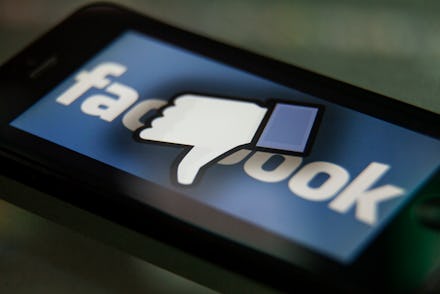The government is trying to force Facebook to sell Instagram and WhatsApp

On Wednesday the Federal Trade Commission, along with 48 state attorneys general, filed antitrust lawsuits accusing Facebook of being a monopoly, and calling on it to sell off Instagram and WhatsApp. While the lawsuits aren't exactly a surprise, as lawmakers have over the last few years taken a particular interest in anticompetitive practices among Silicon Valley's biggest companies, it is nonetheless the biggest legal challenge the social media giant has faced in its existence.
In a press release announcing the suit, the FTC said "Facebook has engaged in a systematic strategy — including its 2012 acquisition of up-and-coming rival Instagram, its 2014 acquisition of the mobile messaging app WhatsApp, and the imposition of anticompetitive conditions on software developers — to eliminate threats to its monopoly." Those acquisitions, along with many smaller companies Facebook has absorbed over the years, have helped it reach its current staggering $800 billion market cap.
The investigation was led by New York Attorney General Letitia James, who said at a press conference Wednesday, “For nearly a decade, Facebook has used its dominance and monopoly power to crush smaller rivals and snuff out competition, all at the expense of everyday users.”
Facebook is certain to use the full force of its significant legal and political influence, as well as its Fort Knoxian war chest, to fight the charges. In leaked audio obtained by the Verge last year, Mark Zuckerberg said he viewed then-presidential candidate Elizabeth Warren's proposed break-up of the company as an "existential threat" and that he would "go to the mat" if she were elected and tried to split it up. A version of that scenario, which seems to now be playing out, would "suck," Zuckerberg added at the time.
In addition to forcing Facebook to sell off two of its largest assets, if successful the suit would require the company to get the approval of the state attorney generals for any future acquisition over $10 million.
It's worth noting that the FTC did previously approve Facebook's acquisitions of both Instagram and WhatsApp in 2012 and 2014, respectively. The about-face could partly be attributed to the massive growth — and resultant market dominance — the platforms have experienced during those years, but it's also glaringly obvious that lawmakers simply understand the tech industry better than they used to. Just a year and a half ago, during the antitrust hearings in June 2019, NPR asked if lawmakers were "tech savvy enough to conduct their antitrust investigation."
Facebook, for its part, is saying the government just wants a mulligan after previously clearing the acquisitions. "The most important fact in this case, which the Commission does not mention in its 53-page complaint, is that it cleared these acquisitions years ago," Facebook's vice president and general counsel Jennifer Newstead said in a statement. "The government now wants a do-over, sending a chilling warning to American business that no sale is ever final." Facebook did not respond to Mic's request for comment.
Before the Instagram purchase Zuckerberg seemed to indicated he viewed the company as a threat, and an acquisition as a way of eliminating that competition.
"These businesses are nascent but the networks are established," Zuckerberg wrote in 2012 to then Facebook CFO David Ebersman. "The brands are already meaningful, and if they grow to a large scale they could be very disruptive to us." That email was made public during the July antitrust hearings this summer. And while Zuckerberg tried to clarify, in a separate email, that he wasn't implying "that we’d be buying them to prevent them from competing with us in any way," it's difficult not to read it that way.
The upcoming courtroom battle could last months, if not years, and have a lasting impact on the way technology companies operate. If Facebook is forced to sell off Instagram and WhatsApp, the ripples will affect all of our online lives and the way we interact with one another. Other companies, less threatened by the all-encompassing power of the Facebook/Instagram/WhatsApp trifecta might be emboldened to create new, innovative platforms we can't yet imagine. And that might not be such a bad thing.